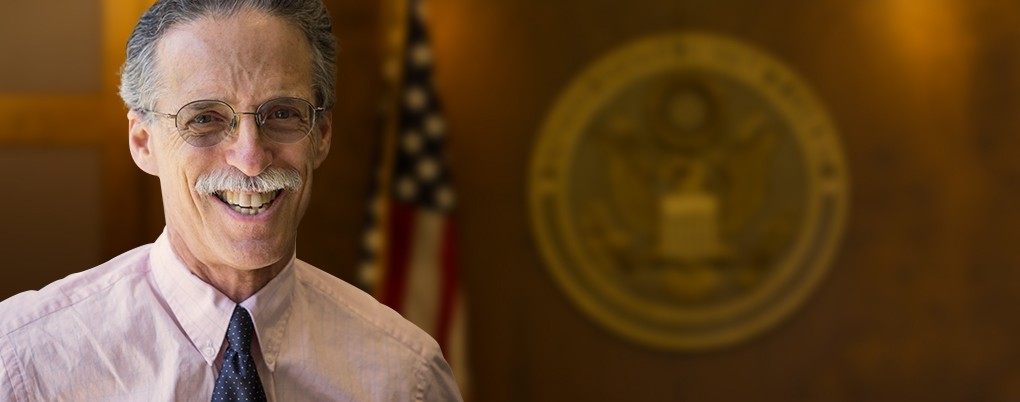Temple Law Professor Jules Epstein leaned back in his chair and laughed. “You’re talking to the world’s foremost authority on Amtrak derailments,” he said, referring to a recent case with an unusual procedural history on which he’d become the go-to legal expert. “But you’re also talking to a teacher, and what became apparent with this case was the curiosity of our local journalists and their eagerness to be taught.”
Thus began “Criminal Law 101 for Journalists,” which to Epstein’s knowledge is the first program of its kind in the region. On July 20, invited members of the press will gather over coffee and pastries to learn the basics of criminal law and procedure from Epstein, who is the Director of Advocacy Programs at Temple Law and a nationally recognized expert in criminal law and procedure and the rules of evidence.
Like every good teacher, Epstein is also an insatiable learner – so much so that a recent profile on the law school’s website is focused on his pursuit of “mastery.” He understands the desire for a deeper knowledge of how facts and law fit together in a given story, and is known for offering thorough, thoughtful responses to journalists seeking to master the legal intricacies of a particular case or issue.
“Criminal Law 101 for Journalists” is exactly that: a thorough, thoughtful primer on legal terms of art, criminal law and procedure, Pennsylvania judicial organization and legal processes, and basic sentencing guidelines that will aid all journalists –not just crime reporters – in understanding the issues, asking the right questions, and knowing where to look for the answers when the story they’re pursuing takes a criminal turn. While it’s by invitation only, interested journalists who have not received an invitation can still register by sending an email to lawcomm@temple.edu or by clicking here.
Jules Epstein
Jules Epstein is a Professor of Law and Director of Advocacy Programs at Temple University Beasley School of Law. He is a former partner at the highly respected Philadelphia criminal defense and civil rights firm of Kairys, Rudovsky, Messing & Feinberg, LLP, where he remains of counsel. Epstein teaches criminal law and evidence courses.
A 1978 graduate of the University of Pennsylvania School of Law, Epstein began his legal career with the Defender Association of Philadelphia. Epstein’s work has concentrated, in recent years, on capital case, eyewitness, and forensics issues. He has taught death penalty law nationally to judges and attorneys, and continues to handle capital cases at the appellate and post conviction stages. In the area of eyewitness evidence, he has lectured, authored both articles and book chapters, and served as an expert witness.
Nationally, Epstein was co-editor of Scientific Evidence Review: Admissibility and the Use of Expert Evidence in the Courtroom, Monograph No. 9 (ABA Books, 2013) and The Future of Evidence (ABA Books, 2011). He has served on workgroups involving issues in DNA and latent prints. He is faculty for the National Judicial College, teaching courses to judges in advanced evidence and capital case law. In Pennsylvania, he is a member of a group of lawyers, judges and academics revising the Suggested Standard Jury Instruction, Criminal, and served on a commission addressing issues in cases of wrongful convictions. Epstein served as a member of the National Commission on Forensic Science from 2013 until the Commission’s demise in 2017.

